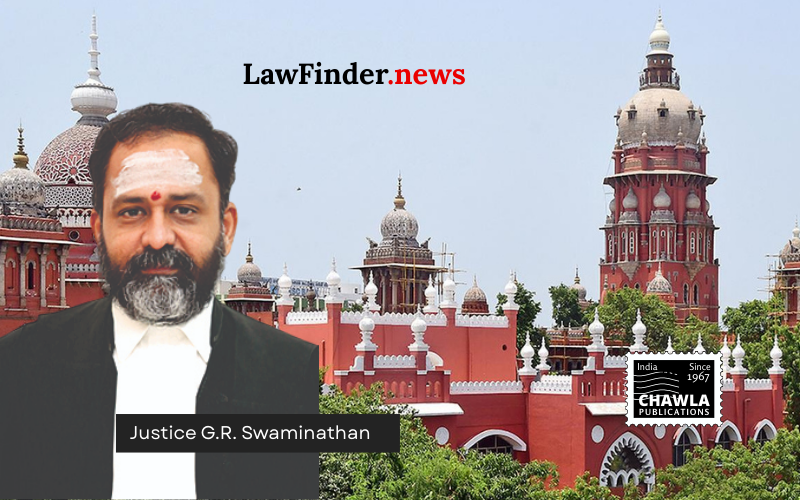Jamaths Cannot Arbitrarily Deny No Objection Certificates, Violating Constitutional Rights: Court
In a landmark judgment, the Madurai Bench of the Madras High Court has reinforced the fundamental right to marry as enshrined under Article 21 of the Constitution of India. The court directed the jurisdictional Jamath to issue a No Objection Certificate (NOC) for the marriage of the petitioner's daughter, emphasizing that arbitrary denial of such certificates infringes on fundamental rights.
The case, Ulpath Nisha v. Tamilnadu Wakf Board, arose from a dispute where the jurisdictional Jamath refused to issue an NOC for the marriage of Ulpath Nisha's daughter, Tamima Arasi, to Mohammed Yusuf, scheduled for September 28, 2025. The denial was purportedly due to personal disputes within the petitioner's family. Justice G.R. Swaminathan, presiding over the case, highlighted that the refusal was contrary to a special resolution passed by the Tamil Nadu Wakf Board condemning such arbitrary actions.
The judgment stressed that the right to marry is integral to one's privacy rights and forms a part of fundamental rights under Article 21. The court cited precedents, including Shafin Jahan v. Asokan K.M., establishing that fundamental rights can be enforced against non-state actors, such as Jamaths, under Articles 19 and 21.
The court noted that the Wakf Board has statutory authority under Section 32 of the Waqf Act, 1995, to issue directives, which the Jamath must adhere to. The refusal to issue an NOC without justified grounds or written communication was deemed impermissible.
Justice Swaminathan ordered respondents 4 and 5, the Muthavalli and Secretary of the jurisdictional Jamath, to issue the NOC by September 23, 2025, facilitating the marriage under Islamic rites in Ramanathapuram. Furthermore, the judgment underscored the importance of marriage registration, citing the Supreme Court's observations in Seema v. Ashwani Kumar, which recognized its evidentiary value, particularly for women concerning custody, legitimacy of children, and the age of parties to the marriage.
The court's decision to allow the writ petition and direct the issuance of the NOC underscores the judiciary's role in safeguarding fundamental rights against arbitrary actions by non-state entities. This judgment not only reaffirms the constitutional right to marry but also highlights the importance of adherence to statutory provisions by religious and community bodies.
Bottom Line:
Right to marry is a fundamental right under Article 21 of the Constitution of India. Jamaths cannot deny issuance of No Objection Certificate (NOC) for marriage arbitrarily. Such denial, if unjustified, is violative of fundamental rights and can be remedied through writ proceedings.
Statutory provision(s): Article 21 of the Constitution of India, Article 19 of the Constitution of India, Section 32 of the Waqf Act, 1995
Ulpath Nisha v. Tamilnadu Wakf Board, (Madras)(Madurai Bench) : Law Finder Doc Id # 2781438




